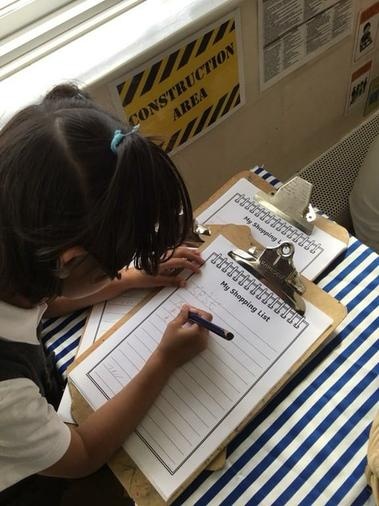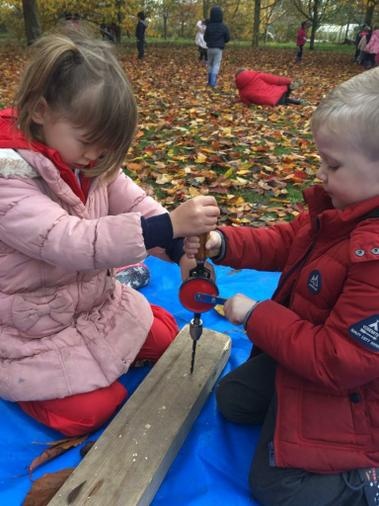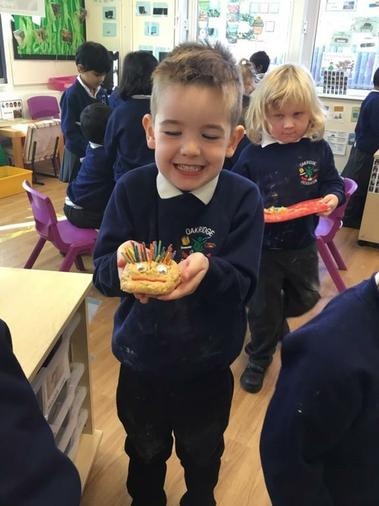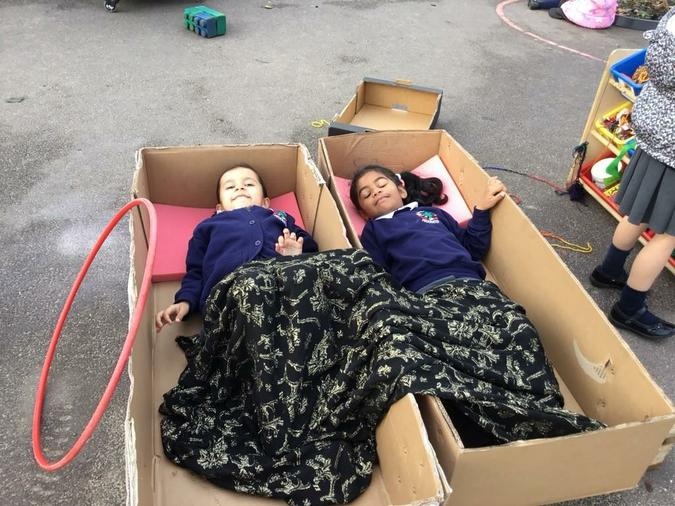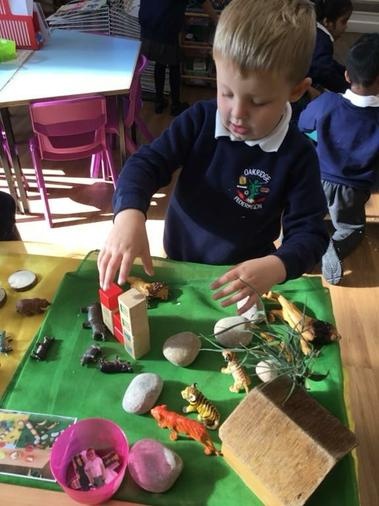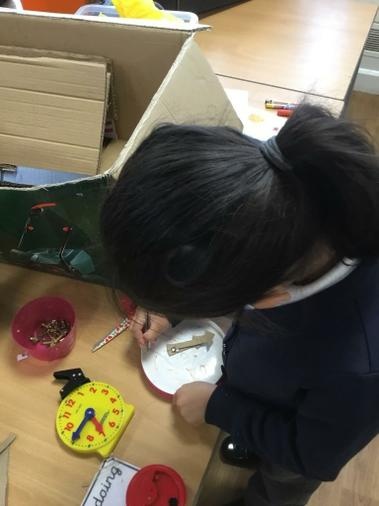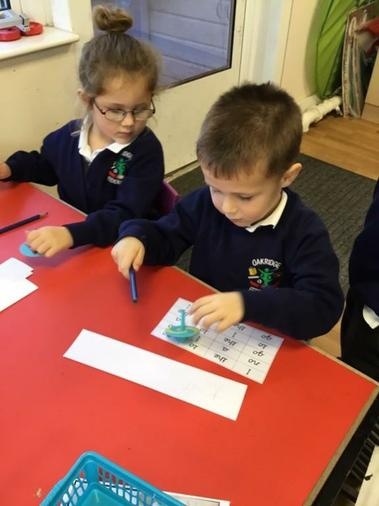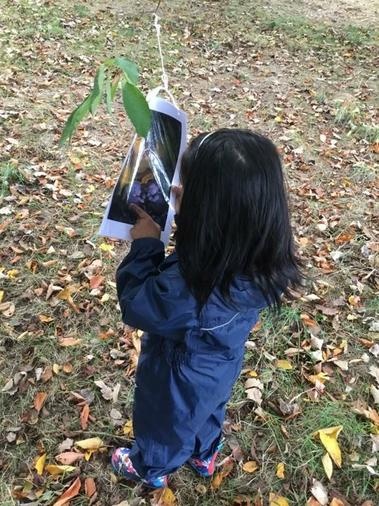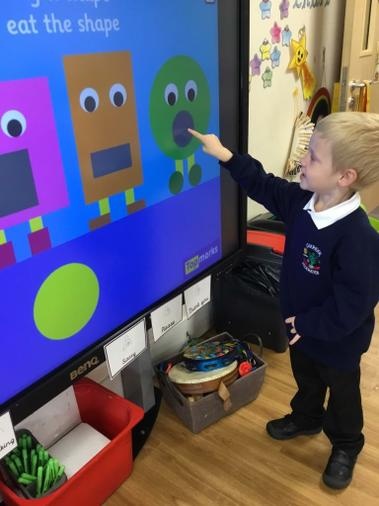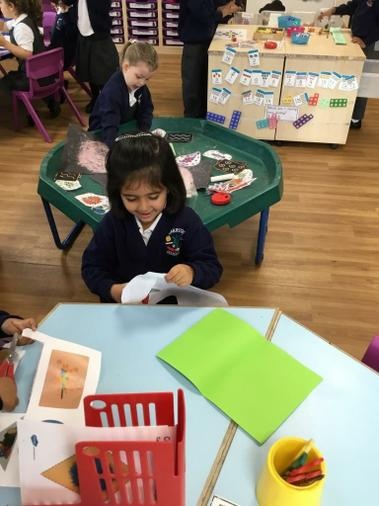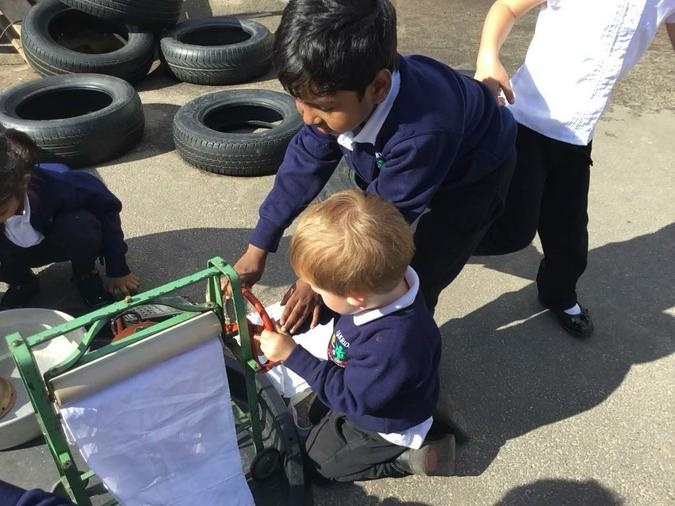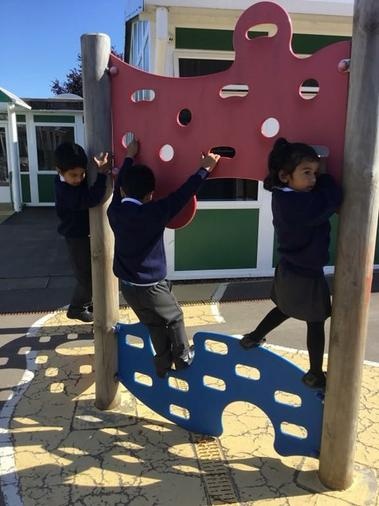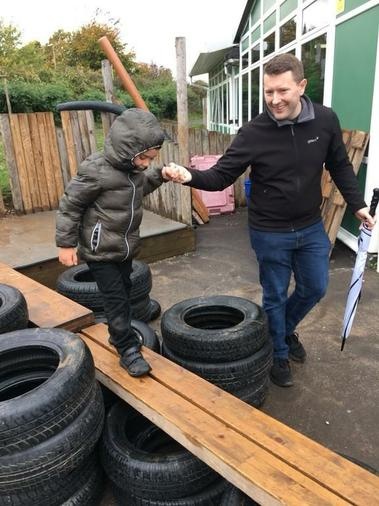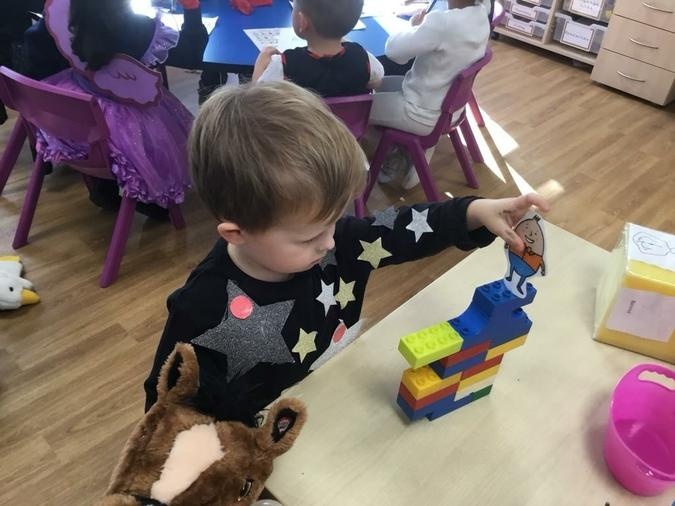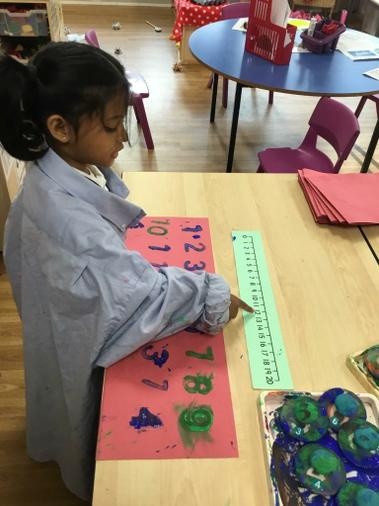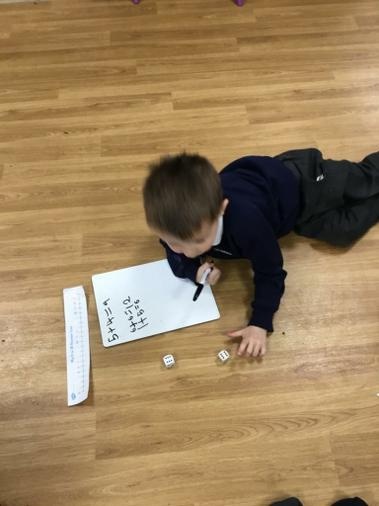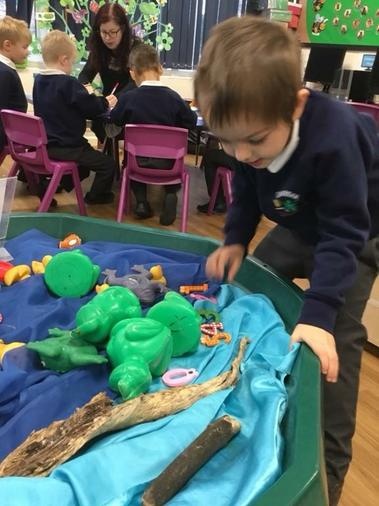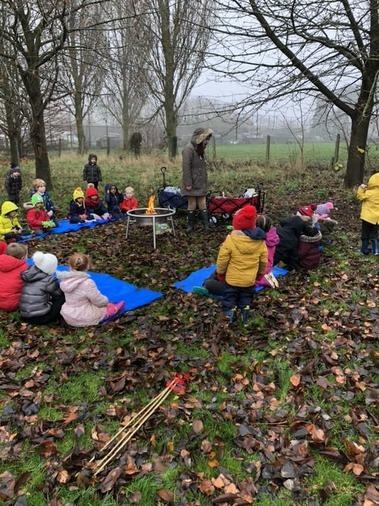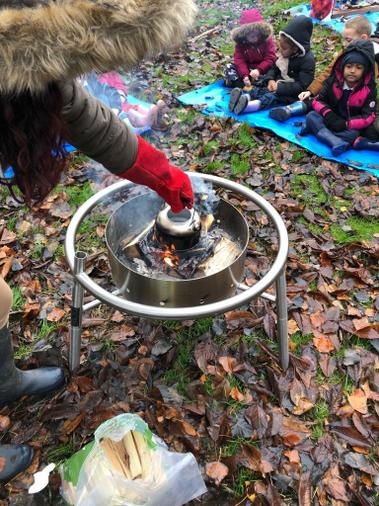Early Years
Curriculum Leader: Libby Searle
The Early Years at Oakridge Schools Federation
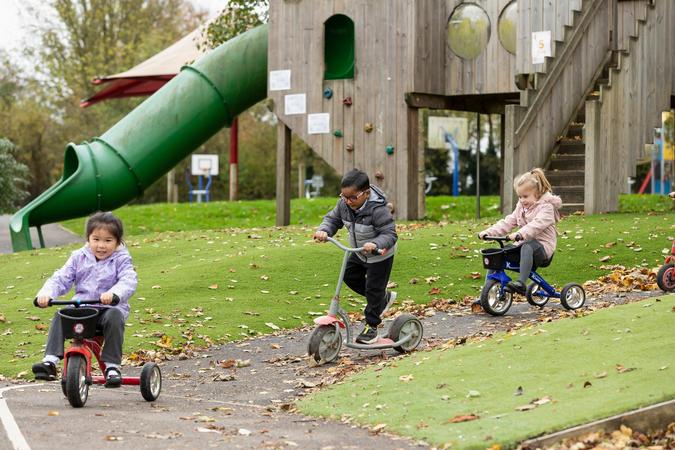 The importance of the Early Years in a child’s life cannot be underestimated as it is the foundation for lifelong learning. At Oakridge School’s Federation we recognise the important role that these years play in a child’s development and aim to provide the best start to your child’s time in nursery and YR, ensuring that when they leave us they are excited and ready to take on the next challenge in their learning with determination, resilience and a curious mind.
The importance of the Early Years in a child’s life cannot be underestimated as it is the foundation for lifelong learning. At Oakridge School’s Federation we recognise the important role that these years play in a child’s development and aim to provide the best start to your child’s time in nursery and YR, ensuring that when they leave us they are excited and ready to take on the next challenge in their learning with determination, resilience and a curious mind.
 Every child is unique and our environment is structured with them at the heart of it. We celebrate all of the different experiences that they bring. Our Early Years team provide a stimulating learning environment, both inside and outside; a place where your child can feel safe to explore and learn new things through a range of hands on and play based learning. In addition to this we facilitate short, whole class and small group sessions. Our environment is ‘free flow’ thus allowing the children many opportunities to make their own decisions and develop independence.
Every child is unique and our environment is structured with them at the heart of it. We celebrate all of the different experiences that they bring. Our Early Years team provide a stimulating learning environment, both inside and outside; a place where your child can feel safe to explore and learn new things through a range of hands on and play based learning. In addition to this we facilitate short, whole class and small group sessions. Our environment is ‘free flow’ thus allowing the children many opportunities to make their own decisions and develop independence.
EYFS curriculum
 Our curriculum is built around the developmental needs of our children. The statutory framework for the EYFS and the non-statutory guidance in Development matters support our curriculum planning. In addition to this we have created the following goals which we feel are important to teach our children. These have been developed from our observations of the children, conversations with parents, transitions from other settings (where appropriate) and knowledge of our local community. We know that all children learn in different ways and at different times, therefore we are flexible in our approach and our teaching and planning evolves in line with the children’s developmental needs, next steps and interests at any given time.
Our curriculum is built around the developmental needs of our children. The statutory framework for the EYFS and the non-statutory guidance in Development matters support our curriculum planning. In addition to this we have created the following goals which we feel are important to teach our children. These have been developed from our observations of the children, conversations with parents, transitions from other settings (where appropriate) and knowledge of our local community. We know that all children learn in different ways and at different times, therefore we are flexible in our approach and our teaching and planning evolves in line with the children’s developmental needs, next steps and interests at any given time.
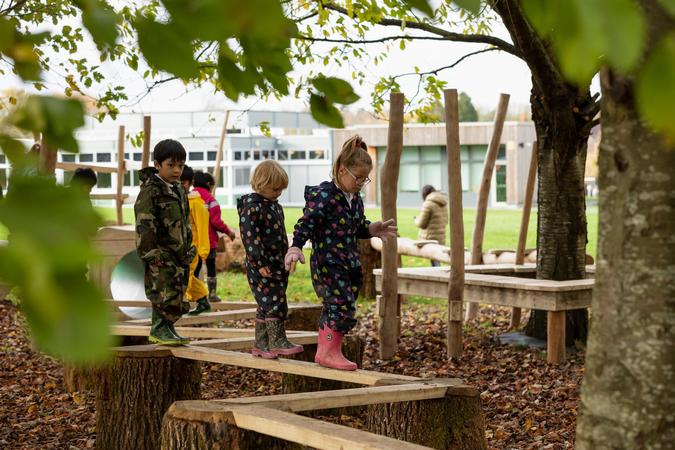 Our carefully planned environment offers the children the opportunity to develop and embed the knowledge and skills that has been taught, alongside adults who, through their interactions with the children, support and move the children’s learning forward as they play. Discrete teaching sessions of literacy and maths skills take place daily as well as adult initiated learning where necessary. These curriculum goals weave through the whole of the curriculum including the Jigsaw programme for development of PSED and key person time.
Our carefully planned environment offers the children the opportunity to develop and embed the knowledge and skills that has been taught, alongside adults who, through their interactions with the children, support and move the children’s learning forward as they play. Discrete teaching sessions of literacy and maths skills take place daily as well as adult initiated learning where necessary. These curriculum goals weave through the whole of the curriculum including the Jigsaw programme for development of PSED and key person time.
Oakridge Federation EYFS curriculum goals
- Emotional regulation-I can talk about and recognise my feelings and those of people around me
- Independent-I am independent in my choice making and can take care of myself
- Care for our world-I enjoy exploring and looking after my environment
- Good communicator-I can listen to and share my ideas appropriately with others
- Good friend-I can share things with others and be kind and helpful
- Celebrate uniqueness-I know that everyone is different and I am proud of what I, my friends and our families do
- Imaginative-I use my imagination in my play and story telling
- Curious and a problem solver-I use my senses and physical skills to play and explore, without giving up, so I can find out new things.
Intent |
Implementation |
Impact |
|
Giving our children strategies to enable them to recognise and manage their emotions. To enable them to develop resilience and emotional understanding and emotional literacy |
Jigsaw programme, adults modelling of skills and strategies, visuals to support sharing of feelings, partnership with parents |
Children will understand and be able to talk about their emotions and those of other people. They will be able to react appropriately and in a measured way, making steps to resolve disputes and using strategies that they have learnt to feel calm |
|
Giving our children strategies to help them become independent in the management of their personal belongings, hygiene and self-care |
Interactions with adults-modelling of skills and strategies, ‘snot stops’, toilet training, well organised and clearly labelled environment, visuals to support routines, regular changing opportunities eg PE, Forest School Partnership with parents |
Children are able to organise the belongings at the beginning and the end of the school day and access resources appropriately during their learning times Children are able to manage their own self-care and personal hygiene needs (in line with their developmental stage) |
|
Children show respect to the other people that they meet in school (children and adults) and our classroom environments |
Circle time, adult’s modelling, clear and well labelled environment, clear rules and expectations from day one. Jigsaw charter, praise and recognition |
Children will listen to adults and carry out instructions as asked. They will engage politely and appropriately with all adults in school. Children will tidy their classrooms and look after the resources within them |
|
Children understand the impact that they and other people have on the environment |
Forest school, environmental aspects to learning within children’s interests and themes explored, school trips, stories and non-fiction books |
Children take pride in their school environment and are able to look after their surroundings ensuring that it is clean, tidy and safe. Children are beginning to take these ideas and apply them to their wider world |
|
Children listen to others and are able to converse with their peers and adults |
Jigsaw programme, interactions with adults-modelling of skills and strategies, language link programme, talkboost programme, use of makaton |
Children communicate with adults and children in an appropriate and effective way (in line with their developmental stage and needs) |
|
Children enjoy the company of their peers. They demonstrate concern and care towards others |
Jigsaw programme, Lego sessions, interactions with adults-modelling of skills and strategies, together times |
Children can conduct themselves appropriately when with other children. They are able to share resources, take turns and start to resolve conflicts with their peers. |
|
Children have a good understanding of the differences within their classes and the wider year group (including SEND and medication needs) |
Use of Makaton, visual timetable, individual now and next boards, Jigsaw programme, training for adults as required |
Makaton is included within the provision and children use this to communicate with others as required. Children will be keen to help and support effectively those who have additional needs |
|
Children understand the cultural diversity of our school community. They will celebrate the different cultures, their festivals and special days |
Tapestry sharing time, visitors, continuous and enhanced provision, sharing home languages, parent partnership |
Children are willing to learn about different cultures, religions and beliefs and show respect to everyone. Children are proud to share their own culture with others |
|
Children have daily opportunities to listen to stories and develop and increase their vocabulary |
‘Story tellers chair’ small world provision, book corner, story spines, rhyme of the week, sign of the week, buzz words, narrative approach, EAL pre-teach, language links programme, talkboost programme |
Children enjoy books and are able to incorporate their knowledge of narrative into their imaginative play. They enjoy playing with words and use new vocabulary within their play and conversations |
|
Children will explore the setting both indoors and outdoors, to develop their physical confidence, risk taking, problem solving skills and resilience |
Forest school, continuous and enhanced provision both indoors and outdoors, adult interactions/modelling, including sports coaches, praise, parent partnership |
Children are willing to try new things and take managed risks. They know that sometimes things don’t work out as planned are will try again, thinking about how they can approach a task in a different way |
